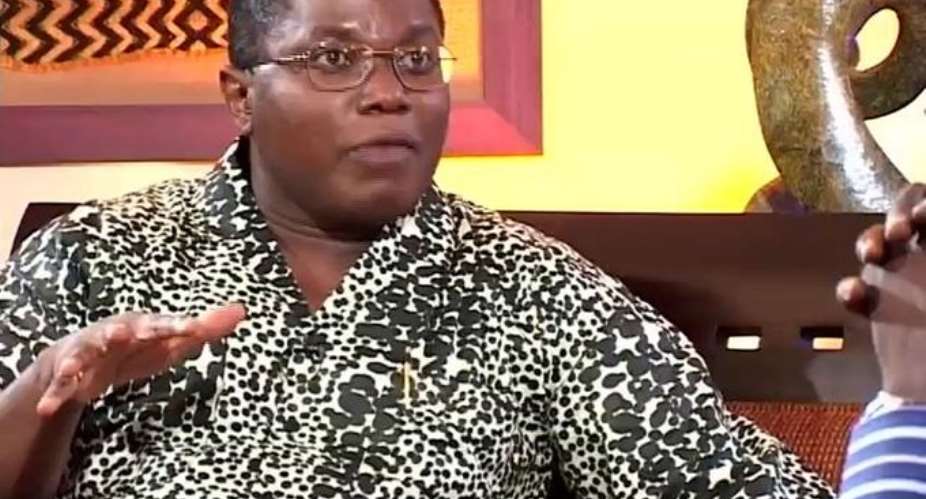Accra , June 26, GNA - The National Development Planning Commission (NDPC) has called for intensified media advocacy for holistic evaluation of government policies and programmes to ensure better development outcomes.
Dr Nii Moi Thompson, the (NDPC) at a media dialogue in Accra, said very little attention had been paid to the evaluation of policies and programmes, with resources being biased towards monitoring.
This, he said, was because evaluation, compared to monitoring, was much more difficult to undertake and also demand-driven, therefore, there was the need to encourage state institutions through intensified advocacy to subscribe to the idea of using evaluation to achieve project impact and sustained development.
The media dialogue, which was organised by the NDPC in collaboration with the Ghana Monitoring and Evaluation Forum (GMEF), UNICEF, and the Africa Evaluation Association (AfrEA), was part of activities to commemorate the 2015 International Year of Evaluation (EvalYear).
Dr Thompson also acknowledged data and information as critical components of the evaluation process and cautioned those responsible for public trust to desist from personalising data, but to make them open to the public for their effective usage.
The NDPC, he said, was working on a project to improve policy research by establishing a supportive fund, which was not dependent on outside support to ensure focus.
Nana Opare-Djan, the Deputy Director in-Charge of Monitoring and Evaluation at the NDPC, said there was a current shortfall in the level of accountability due to lack of evaluation.
He called for a change in the discourse to be able to hold politicians accountable and to create an opportunity for Ghana to promote demand and use of evaluation in policy-making, among government, civil society organisations and parliamentarians.
Nana Opare-Djan said even though evaluation had been acknowledged as a critical aspect of the effective national development process, it was lacking in Ghana's development policy agenda because it was expensive and also demand-driven.
He said Ghana currently faced the challenge of under-evaluation, with various systems focusing solely on monitoring, which had also affected commitment to funding of evaluation.
He, therefore, urged the Government to make conscious efforts to partner with civil society organisations to complement arrangements such as providing appropriate resources to the NDPC to be able to effectively execute its constitutional mandate of ensuring national development through effective evaluations of state policies and projects.
Dr Charles Amoatey, the Director of the Centre for Learning and Evaluation Results (CLEAR), underscored the importance of evidenced-based decisions, saying although Ghana was good in policy development; it was handicapped in their operationalisation.
He advocated the need for home-grown solutions to the challenge and urged that more time be committed to evaluating, for example, existing programmes such as the School Feeding Programme to assess their impact on students' performances.
Mr George Osei-Bimpeh, the Country Director of SEND Ghana, a Non-governmental Organisation, said failures formed important aspects of the human development process, therefore, they ought to be openly and freely discussed to ensure corrections.
He, however, stated that effective evaluation processes were highly political, and required content specifics that were good for the country.
GNA





 Minority will expose the beneficial owners of SML, recover funds paid to company...
Minority will expose the beneficial owners of SML, recover funds paid to company...
 Prof. Opoku-Agyemang has ‘decapitated’ the NPP’s strategies; don’t take them ser...
Prof. Opoku-Agyemang has ‘decapitated’ the NPP’s strategies; don’t take them ser...
 Abubakar Tahiru: Ghanaian environmental activist sets world record by hugging 1,...
Abubakar Tahiru: Ghanaian environmental activist sets world record by hugging 1,...
 Prof. Naana Opoku-Agyemang will serve you with dignity, courage, and integrity a...
Prof. Naana Opoku-Agyemang will serve you with dignity, courage, and integrity a...
 Rectify salary anomalies to reduce tension and possible strike action in public ...
Rectify salary anomalies to reduce tension and possible strike action in public ...
 Stop all projects and fix ‘dumsor’ — Professor Charles Marfo to Akufo-Addo
Stop all projects and fix ‘dumsor’ — Professor Charles Marfo to Akufo-Addo
 Blue and white painted schools will attract dirt shortly – Kofi Asare
Blue and white painted schools will attract dirt shortly – Kofi Asare
 I endorse cost-sharing for free SHS, we should prioritise to know who can pay - ...
I endorse cost-sharing for free SHS, we should prioritise to know who can pay - ...
 See the four arsonists who petrol-bombed Labone-based CMG
See the four arsonists who petrol-bombed Labone-based CMG
 Mahama coming back because Akufo-Addo has failed, he hasn't performed more than ...
Mahama coming back because Akufo-Addo has failed, he hasn't performed more than ...
